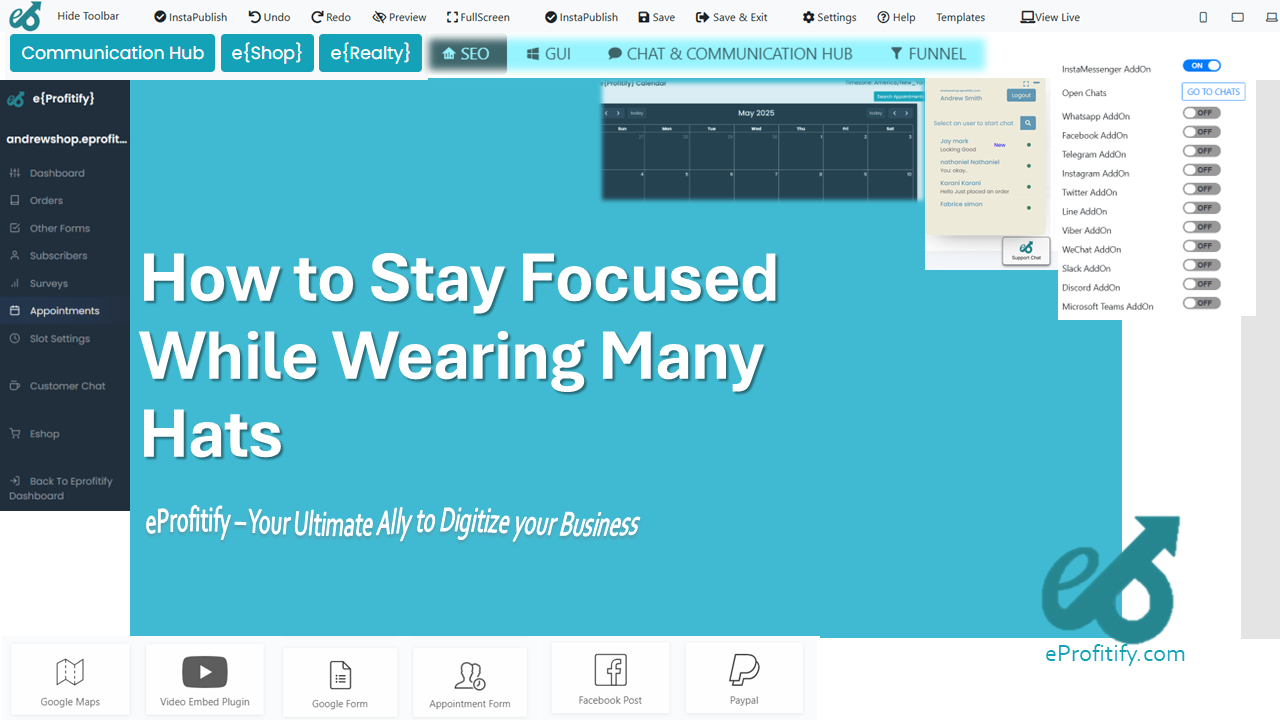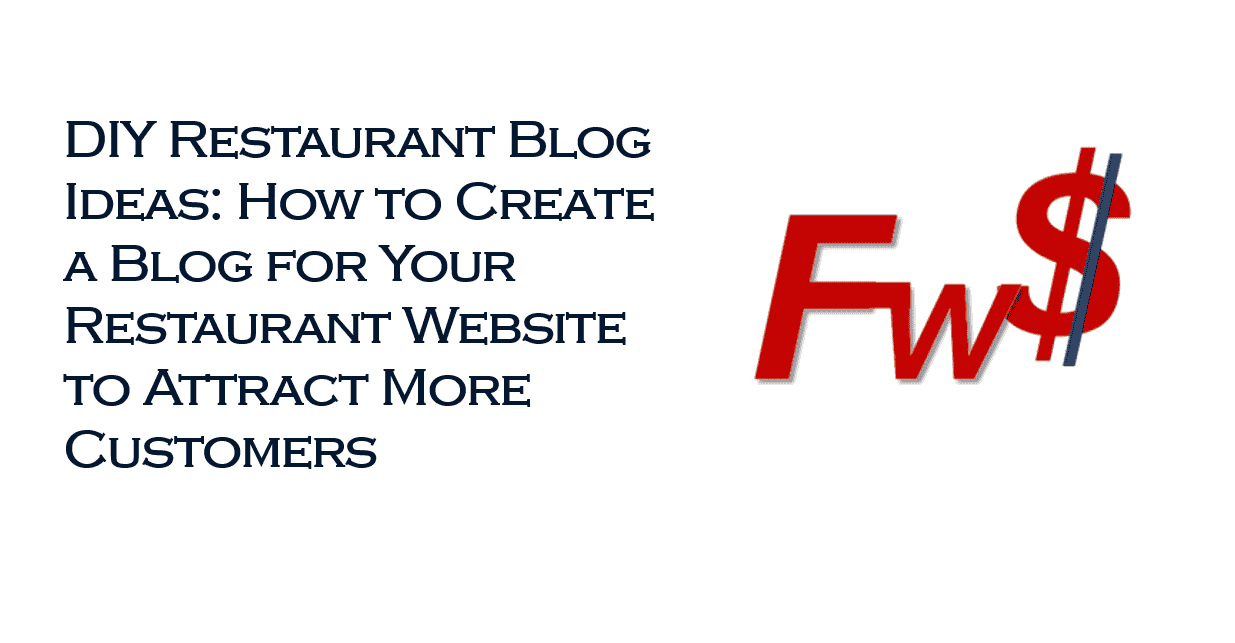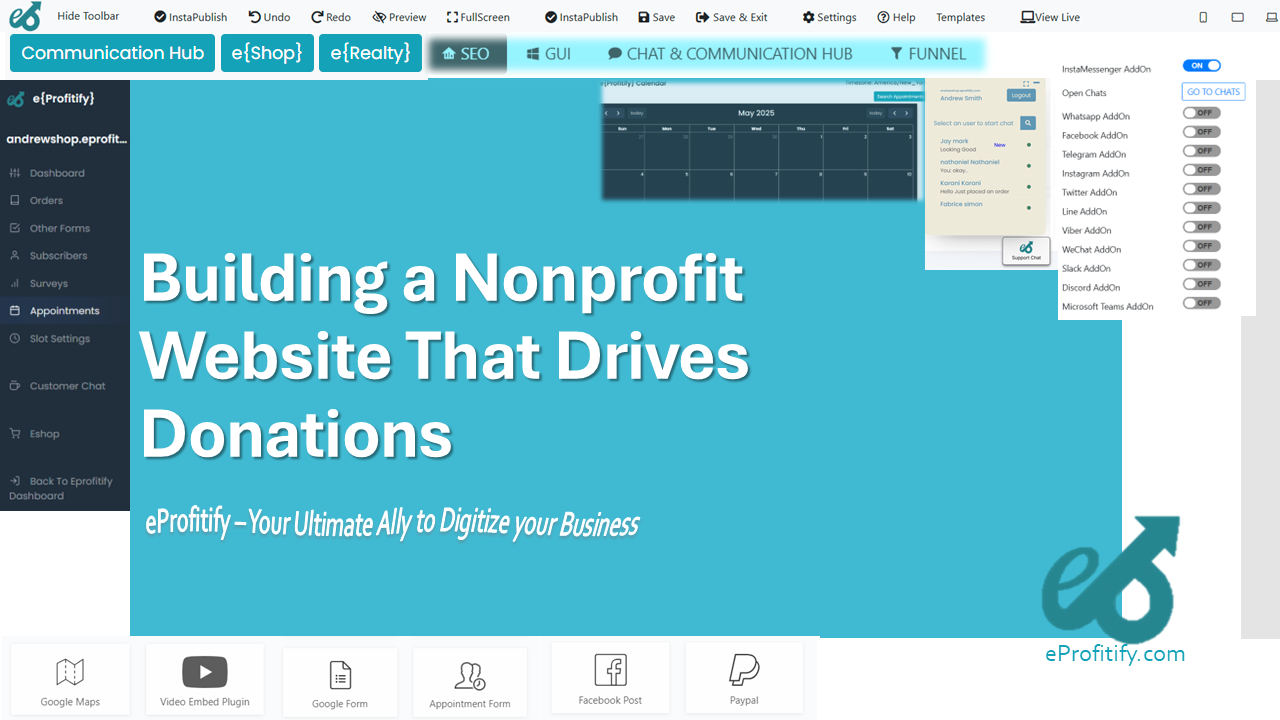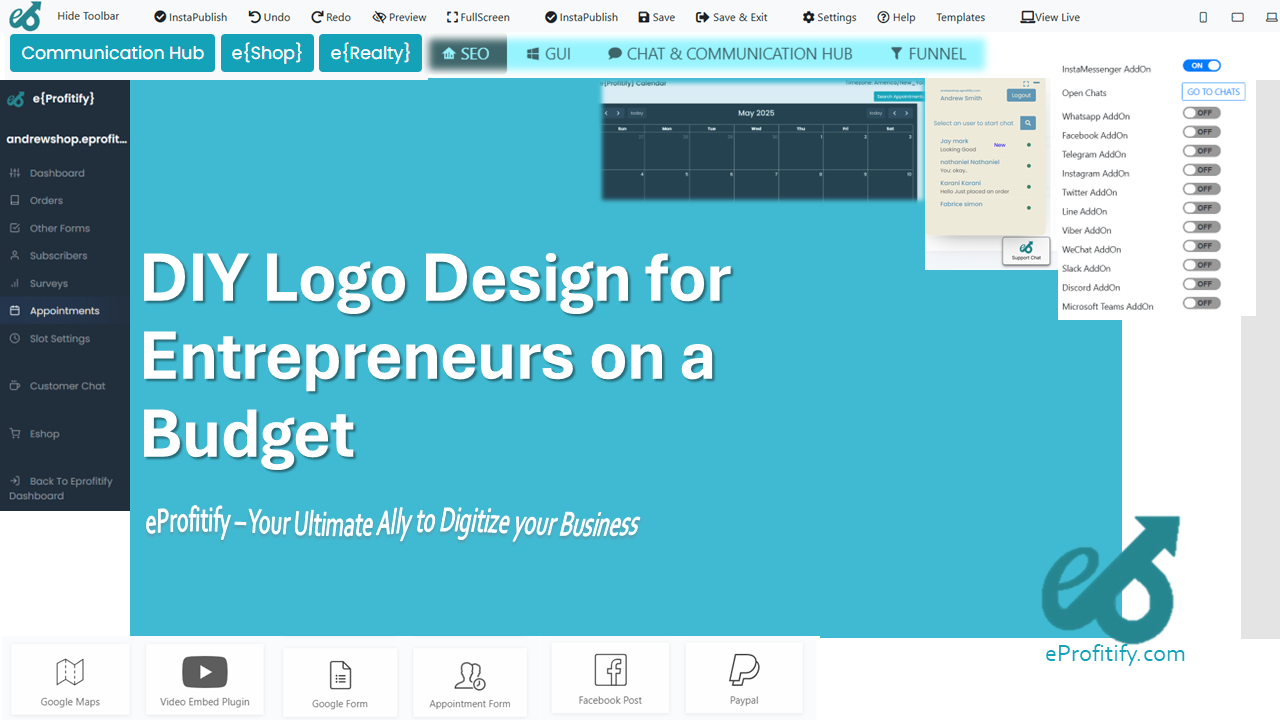Progressive Web Apps for Startups: What You Should Know
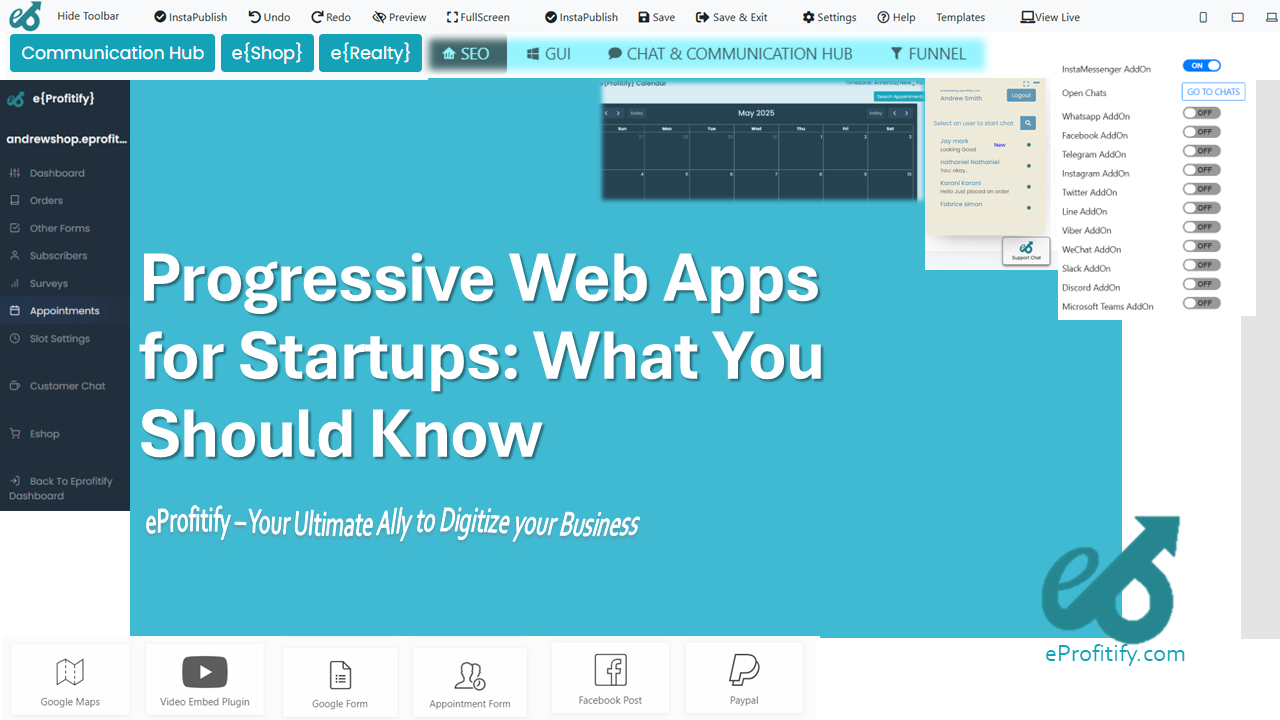
Progressive Web Apps for Startups: What You Should Know
In the fast-paced digital landscape, startups are constantly seeking innovative ways to engage users, reduce costs, and scale efficiently. Progressive Web Apps (PWAs) have emerged as a game-changer, blending the best of web and mobile apps to deliver seamless experiences. This article explores why startups should prioritize PWAs, backed by relevant statistics, and highlights how platforms like eProfitify streamline PWA development with integrated tools.
What Are Progressive Web Apps?
PWAs are web applications enhanced with modern technologies to offer app-like functionality. They leverage service workers for offline capabilities, manifest files for home screen installation, and responsive design for cross-device compatibility. Key features include push notifications, fast loading times, and offline access, making them indistinguishable from native apps in user experience.
Why Startups Should Care About PWAs
Startups operate in resource-constrained environments where agility and cost-efficiency are paramount. PWAs eliminate the need for separate iOS and Android app development, reducing time-to-market and costs. Consider these compelling statistics:
- Mobile Dominance: As of Q2 2023, 59% of global website traffic comes from mobile devices (Statista). PWAs optimize mobile experiences without sacrificing desktop usability.
- User Engagement: Pinterest’s PWA increased user engagement by 60%, while Twitter Lite saw a 75% rise in tweets sent (Google Case Studies).
- Conversion Rates: Alibaba reported a 76% boost in conversions after launching their PWA, underscoring their impact on revenue.
- Performance: 53% of mobile users abandon sites taking longer than 3 seconds to load (Google). PWAs load instantly, even on unreliable networks.
Key Benefits of PWAs for Startups
-
Cost Efficiency: Developing a single PWA costs significantly less than building native apps for multiple platforms. Maintenance and updates are streamlined through the web, avoiding app store approvals.
-
Enhanced Performance: PWAs cache resources, enabling offline use and reducing server load. Forbes saw a 100% increase in engagement after their PWA cut load time to 2.5 seconds.
-
Improved User Experience: Features like push notifications (which can increase retention by 3x) and home screen installation foster loyalty. The Washington Post’s PWA achieved 88% faster load times, boosting return visits.
-
Cross-Platform Compatibility: PWAs work on any device with a browser, expanding reach. Starbucks’ PWA doubled daily active users with a web-based ordering system.
-
SEO Advantages: PWAs are discoverable via search engines, unlike native apps. Improved performance metrics (e.g., speed) also boost search rankings.
Challenges and Considerations
While PWAs offer immense benefits, startups should be mindful of:
- Limited Hardware Access: Some device features (e.g., Bluetooth) may require native app integration.
- iOS Limitations: Historically, Apple’s Safari lagged in supporting PWA features, though recent updates show improvement.
- Testing Requirements: Ensuring compatibility across browsers and devices demands rigorous testing.
Tools and Platforms: Simplifying PWA Development
Building a PWA from scratch requires technical expertise, but platforms like eProfitify democratize access with no-code/low-code solutions. As a leading website publishing and management tool, eProfitify empowers startups to launch PWAs integrated with critical business tools:
- Instant Messaging: Foster real-time communication with customers directly within the app.
- Appointment Management: Automate booking and reminders, reducing no-shows.
- Ecommerce Integration: Launch scalable online stores with PWA speed and reliability.
- CRM Tools: Track customer interactions and personalize marketing efforts.
- Analytics Dashboard: Monitor performance and user behavior to refine strategies.
eProfitify’s holistic approach allows startups to deploy feature-rich PWAs without extensive coding, bypassing the need for disparate systems. For example, a boutique startup can manage inventory, process payments, and engage customers via push notifications—all within a single platform optimized for PWA performance.
The Future of PWAs for Startups
As 5G and edge computing evolve, PWAs will become even faster and more interactive. Startups adopting PWAs today position themselves to leverage these advancements seamlessly. With platforms like eProfitify reducing technical barriers, the focus shifts to innovation and growth rather than infrastructure.
Conclusion
Progressive Web Apps represent a strategic advantage for startups, merging affordability with high performance. By delivering native-like experiences on the web, they drive engagement, conversions, and operational efficiency. Tools like eProfitify amplify these benefits by bundling essential features into one platform, enabling startups to compete effectively in the digital arena. As mobile usage surges, embracing PWAs isn’t just an option—it’s a necessity for agile, forward-thinking businesses.



